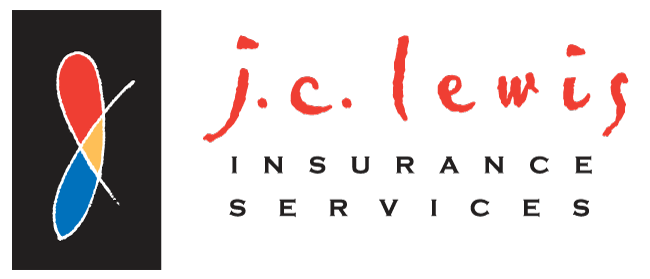Acquiring a has become far more complicated than it was prior to 2010 with the passage of the Affordable Care Act.
This is true no matter where you live and it is true for those looking to find a health insurance plan in California.
The Golden State’s exchange, Covered California, had some rough start at its inception in October 2013 with the new qualifications, tax requirements, etc. However, the last seven years have seen great strides in our resident’s ability to secure affordable health care.
While health insurance was once a relatively common benefit provided for most employees prior to Obamacare, the continuous rising costs of monthly premiums for group health insurance coverage has caused many smaller employers to reconsider their plan offerings for members.
Fortunately, affordable options for individuals have been made available through Covered California which offers plans from 11 different insurance providers. Including Blue Shield of California, Anthem Blue Cross, Kaiser Permanente and several smaller companies.
Shopping for a health insurance plan can be intimidating and even a bit overwhelming with all the information involved and various factors to be considered. What might be a great plan solution for a healthy and single twenty-something may not work well for a retired couple in their 60s. And what works for one company may not be a good fit for another.
This is why firms such as JC Lewis Insurance serve clients by helping them navigate through the process of finding and acquiring suitable and affordable health insurance in California. We’ve done this successfully for over 40 years despite the dramatic changes, rising costs, and increasingly complex bureaucracy that has attended health coverage.
If you’re looking for an affordable health insurance plan for yourself, or you and your family, or for your employees, it helps to understand the types of common health insurance plans you will need to consider.
THE MOST COMMON TYPES OF HEALTH INSURANCE PLANS
There are more than half a dozen different types and variations of health insurance “plans.” Of these, five of them are the most common and most popular. Odds are high that, regardless of which plan you ultimately choose, it will be one of these.
Here is an overview of each.
HEALTH MAINTENANCE ORGANIZATIONS (HMO)
HMO plans typically provide members with lower out-of-pocket expenses, such as lower monthly premiums, but can also offer fewer options such as being to choose a primary care physician (PCP) or hospital. With an HMO plan, visits to specialists require a referral from a member’s doctor.
On the plus side, typical HMO coverage provides for more preventative services than many other plans. And, while members will have a copayment for most services, they may not be required to pay a deductible before coverage begins. Also, most HMO plans do not require filing claim forms.
However, as with most health coverage plans, members have no coverage for medical services obtained outside of their network without proper authorization from their PCP, or for some emergency situations.
PREFERRED PROVIDER ORGANIZATIONS (PPO)
Unlike HMO members, those in a PPO are not typically required to choose a PCP and they can choose to see any doctor or specialist within their network. PPO plan members are, however, encouraged to use doctors and hospitals within their preferred network.
Also unlike those in an HMO, members do have an annual deductible they are required to meet before coverage begins for their medical bills. While most PPO plans do not require copayments for many services, certain services do require a copayment.
With some PPO plans, co-insurance coverage may be needed to pay for the portion of the total medical expenses a member is responsible for. And, with a PPO plan, higher out-of-pocket costs are typical for services rendered outside of the network.
EXCLUSIVE PROVIDER ORGANIZATIONS (EPO)
EPO plans have a network of physicians that their members are required to use except in the case of emergency. In this respect, they are similar to HMO plans. Employee members also have a PCP who provides referrals for in-network specialists.
One advantage of an EPO is that there is typically a lower premium than with a PPO offered by the same insurer.
With an EPO, choices of health care providers can be limited, although not as limited as with an HMO. And, depending on the plan provider, members may not have to get a referral to see a specialist. However, there is no coverage for out-of-network providers other than for emergency situations and, if a member does visit a provider outside the plan’s network, that member must pay the full cost incurred.
POINT-OF-SERVICE PLANS (POS)
POS plans are not as common as HMOs and PPOs. Typically, a POS plan combines many features of both HMO and PPO plans, and, similar to an HMO, a POS plan may require members to choose a Primary Care Physician (PCP) from their network of providers. In addition, the services provided by the PCP are typically not subject to the plan’s deductible.
A premium feature of a POS is that members usually receive a higher level of coverage for covered services from their PCP. On the other hand, services obtained outside their network may be a lower level of coverage and subject to a deductible. In addition, members may also have to pay for services up-front and then have to submit a claim to be reimbursed.
HIGH-DEDUCTIBLE HEALTH PLANS (HDHP)
An HDHP, high-deductible health plan, can serve as a lower-cost alternative allowing members to pay less for their insurance. An HDHP is often offered as an option with HMO, PPO, EPO, or POS plana. The biggest cost advantage of an HDHP is that they generally have lower premiums compared to other plans.
However, along with a lower monthly premium are higher out-of-pocket costs than with most other plans.
According to HealthCare.gov,
“For 2020, the IRS defines a high deductible health plan as any plan with a deductible of at least $1,400 for an individual or $2,800 for a family. An HDHP’s total yearly out-of-pocket expenses (including deductibles, copayments, and coinsurance) can’t be more than $6,900 for an individual or $13,800 for a family. (This limit doesn’t apply to out-of-network services.).”
Other than basic preventive care, members must pay all of their costs up to the deductible maximum when obtaining medical care. But, as with other health insurance plans, once the maximum amount of out-of-pocket costs is reached, the plan then pays 100 percent of care costs.
HEALTH SAVINGS ACCOUNTS (HSA)
While this is technically not a health plan, you can use a health savings account (HSA) to help pay for out-of-pocket costs with your high-deductible health plan. Another fiscal advantage is that funds put into an HSA are not taxed and remain tax-free when used for eligible medical expenses. Only members enrolled in an HDHP can have an HSA.
Any unused funds remaining in an HSA account rollover at the end of each year and continue to accrue interest, all while remaining tax-free. Typically, these funds can be used for other life events, but this may incur penalties and interest. While an HSA can be attached to a group health insurance coverage plan, it is still owned by the member.
YOUR LOCAL EXPERTS FOR CALIFORNIA MEDICAL INSURANCE
JC Lewis Insurance is a long time family-owned firm made up of expert brokers and based in Sonoma County. We offer California health insurance plans from only the leading health insurance carriers that are licensed to do business in California.
In addition to being experienced, professional brokers, we are licensed and certified by each of these insurance carriers to offer coverage to individuals, families, and small group employers in addition to Medicare supplemental and prescription drug plans for seniors.
Perhaps you are self-employed, or your employer doesn’t provide health benefits. That’s when an individual or family plan can be the best option for you, or you and your family.
When you’re shopping for medical insurance for you and your family, you are likely to have a number of questions and concerns. That’s great because we welcome your questions about health coverage insurance and you can be confident that JC Lewis Insurance Services will help you find the right solution.



